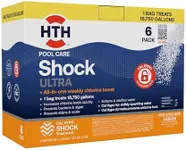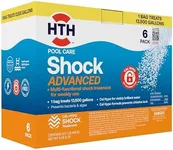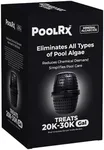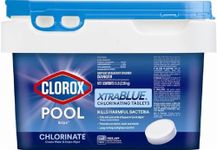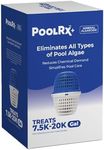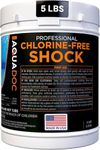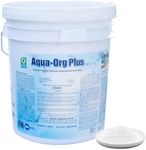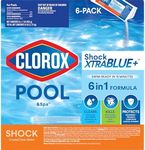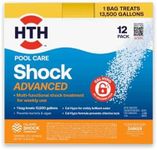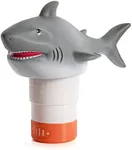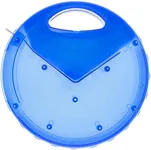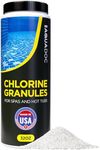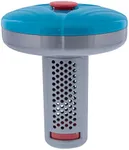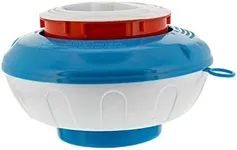Buying Guide for the Best Pool Chemicals
Choosing the right pool chemicals is essential for maintaining a clean, safe, and enjoyable swimming environment. The right balance of chemicals ensures that the water is free from harmful bacteria and algae, while also being gentle on the skin and eyes of swimmers. When selecting pool chemicals, it's important to understand the different types available and how they contribute to the overall health of your pool. Here are some key specifications to consider when choosing pool chemicals.ChlorineChlorine is a disinfectant that kills bacteria and algae in the pool water. It is one of the most important chemicals for maintaining pool hygiene. Chlorine levels should be kept between 1-3 ppm (parts per million). Higher levels can cause skin and eye irritation, while lower levels may not effectively sanitize the water. Choose chlorine products based on your pool size and usage frequency. For regular maintenance, chlorine tablets or granules are common, while liquid chlorine can be used for quick adjustments.
pH BalancerspH balancers help maintain the acidity or alkalinity of the pool water. The ideal pH level for pool water is between 7.2 and 7.6. If the pH is too high, it can cause scaling and cloudy water; if too low, it can lead to corrosion of pool equipment and irritation to swimmers. pH increasers (sodium carbonate) and pH decreasers (sodium bisulfate) are used to adjust the pH levels. Regular testing and adjustments are necessary to keep the pH within the optimal range.
Alkalinity IncreaserTotal alkalinity acts as a buffer for pH levels, helping to stabilize them. The recommended range for total alkalinity is 80-120 ppm. If the alkalinity is too low, the pH can fluctuate widely, leading to potential damage to the pool and discomfort for swimmers. Alkalinity increasers, typically made of sodium bicarbonate, are used to raise the total alkalinity. Regular testing and adjustments ensure that the alkalinity remains within the desired range.
Calcium HardnessCalcium hardness refers to the amount of dissolved calcium in the pool water. The ideal range is 200-400 ppm. Low calcium hardness can lead to corrosion of pool surfaces and equipment, while high levels can cause scaling and cloudy water. Calcium hardness increasers (calcium chloride) are used to raise the levels, while dilution with fresh water can help lower them. Regular testing is important to maintain the balance and protect your pool.
AlgaecidesAlgaecides are chemicals used to prevent and treat algae growth in the pool. Algae can make the pool water green and slippery, posing a health risk. There are different types of algaecides, such as copper-based and quaternary ammonium compounds. The choice depends on the type of algae and the severity of the problem. Regular use of algaecides, especially in warmer climates or during heavy pool usage, can help keep algae at bay.
Cyanuric AcidCyanuric acid, also known as a stabilizer or conditioner, protects chlorine from being broken down by the sun's UV rays. The ideal level of cyanuric acid in a pool is 30-50 ppm. Too much cyanuric acid can reduce the effectiveness of chlorine, while too little can lead to rapid chlorine loss. Cyanuric acid is often added to chlorine products, but it can also be added separately. Regular testing ensures that the levels remain within the optimal range.
Shock TreatmentsShock treatments involve adding a large dose of chlorine or non-chlorine shock to the pool to quickly raise the chlorine level and eliminate contaminants. This is typically done after heavy pool usage, storms, or when the water appears cloudy or has an odor. Shocking the pool helps to break down organic matter and restore water clarity. The frequency of shock treatments depends on pool usage and environmental factors, but it is generally recommended to shock the pool at least once a week during peak season.
